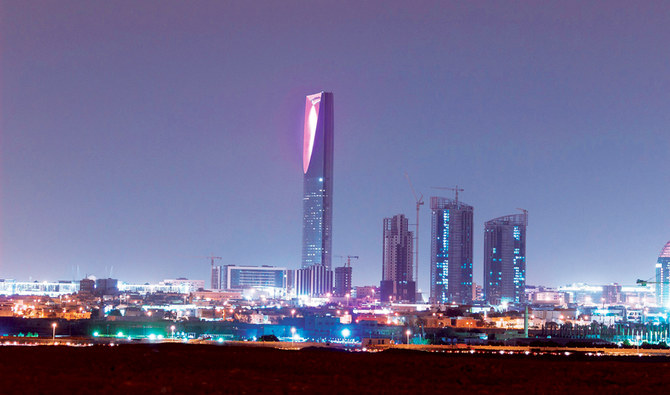LONDON: The Islamic finance investment model is a natural fit for investors looking to use their money ethically and sustainably, and could be a key industry in helping the world to achieve the UN’s Sustainable Development Goals (SDGs), experts have told Arab News.
Islamic finance takes a different approach from today’s profit-above-all investment orthodoxy.
It prioritizes low-risk investments, and avoids markets such as pork, alcohol and gambling — as well as barring the payment of interest and ensuring ethical governance.
Far from impeding growth, however, this alternative approach to investing is rapidly evolving into a booming industry, Martina Macpherson, senior vice president of partnerships and engagement at Moody’s ESG Solutions Group, told Arab News.
She and her team expect the industry to hold over $4 trillion in assets by 2030.
“Islamic finance (will) continue to expand in the next decade across regions and asset classes, and there is an opportunity for Islamic Finance and Shariah-compliant investments to align with the UN Sustainable Development Goals,” she said.
Aligned with Saudi Arabia’s own Vision 2030, the SDGs lay out a vision of a just, fair and prosperous world by 2030, codified into 17 interlinked goals designed by the UN as a “blueprint to achieve a better and more sustainable future for all.”
The growth of Islamic finance as an alternative investment model will help to meet these goals in two ways: By uncovering sustainable and ethical opportunities and by reducing risk, she said.
The “SDGs and Islamic finance share joint values and fundamentals,” she said. “They are ethically linked, asset-backed, focused on risk and opportunity management, and centered on good governance as well as stakeholder impact.”
FASTFACTS
• Islamic finance products a ‘natural fit’ for meeting the UN sustainable development goals — Moody’s.
• The growth of Islamic finance as an alternative investment model will help to meet these goals through uncovering sustainable and ethical opportunities and by reducing risk, says expert.
“Islamic finance products aim to reduce the risk of asymmetric information and are contract-based, making them a natural fit for institutional investors committed to positive impact.”
Much like the Kingdom’s Vision 2030, one of the central goals of the SDGs is to tackle climate change, and this is “one of the key areas for Islamic finance to synchronize with the SDGs,” Macpherson said.
Stella Cox, managing director of Islamic finance intermediary firm DDCAP Group, speaking with Arab News, echoed Macpherson’s views on the role that Islamic finance can play in addressing issues like climate change. She emphasized, however, the importance of developing “a set of common standards, laws and regulations that will ensure shared best practice” moving toward 2030.
This cooperation, she said, “should be perceived as opportunity, rather than challenge, and that opportunity will enable Shariah compliant firms to work more closely with others in addressing and providing solutions for the biggest environmental and social challenges that the world has ever faced.”
Samina Akram, managing director of Samak Ethical Finance, told Arab News that the importance of ethical investing has only grown as the millennial generation have been “exposed to the harsh realities of the conventional financial system” in the wake of the 2008 financial crisis.
They have been turned off conventional investing by “bad governance, bad leadership, casino type banking, and a lack of transparency,” Akram said.
And critically, she added, “they want no part to play in damaging the environment.”

















